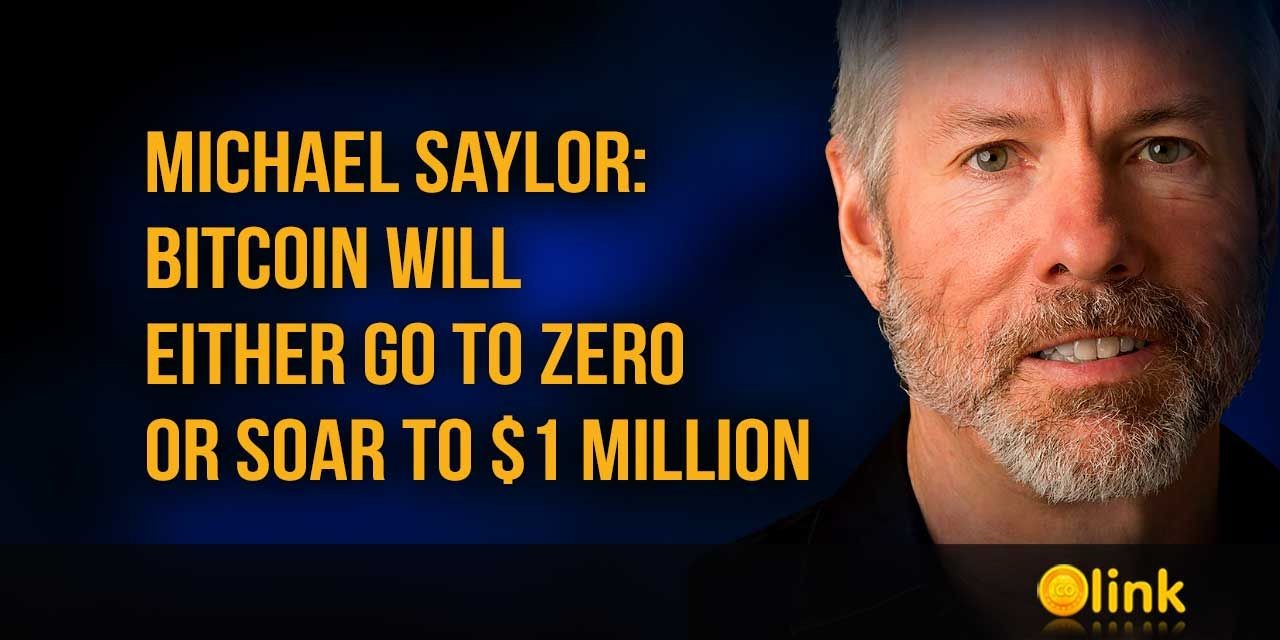Michael Saylor: Bitcoin will either go to zero or soar to $1 million
Bitcoin's Future: A Zero or Million Dollar Question According to Michael Saylor
Michael Saylor, the founder of MicroStrategy, recently presented a bold and binary prediction for Bitcoin's future: it will either plummet to zero or skyrocket to a staggering $1 million, potentially becoming a major institutional asset. In a discussion on CNBC, Saylor outlined his views on Bitcoin as a transformative asset that could redefine global investment strategies.
Saylor believes that Bitcoin reaching the $1 million mark hinges on two key factors: its legitimacy and its adoption by large-scale companies. If Bitcoin continues to build trust among financial institutions, its value could escalate rapidly. This trust factor is crucial in determining whether Bitcoin will either flourish or falter in the coming years.
Highlighting Bitcoin's inherent advantages, Saylor points to its decentralized nature, the cap on its supply at 21 million coins, and its increasing global adoption. These characteristics set Bitcoin apart from other digital assets and traditional financial instruments, offering a unique value proposition to investors.
Saylor's "zero or million" forecast underscores the high volatility within the cryptocurrency market. This binary outcome reflects the nascent and unpredictable nature of cryptocurrencies like Bitcoin. He notes that many institutions currently underestimate Bitcoin's potential, a situation that could change dramatically if it becomes a mainstay in institutional investment portfolios.
Despite the general underestimation, Saylor observes a shift in the investment strategies of some institutions. More organizations are starting to adjust their approaches, increasingly incorporating Bitcoin in anticipation of its long-term growth. Saylor's stance is clear: "If Bitcoin doesn't fall to zero, it's bound to reach $1 million. It's a legitimate asset that's not getting the attention it deserves from institutional investors."
Saylor's firm, MicroStrategy, has consistently demonstrated a bullish position on Bitcoin. Their recent acquisition of an additional 155 BTC for $5.3 million reaffirms their confidence in Bitcoin's potential. Saylor also compares Bitcoin exchange-traded funds (ETFs) favorably against Bitcoin futures ETFs, suggesting that the approval of cryptocurrency ETFs in the United States could attract trillions of dollars in investments.
In conclusion, Michael Saylor's perspective presents a stark but potentially realistic future for Bitcoin. The path to either oblivion or a valuation of $1 million lies in Bitcoin's ability to gain institutional trust and overcome its inherent volatility. As the cryptocurrency landscape continues to evolve, Saylor's insights offer a valuable lens through which to view Bitcoin's potential trajectory in the global financial ecosystem.






